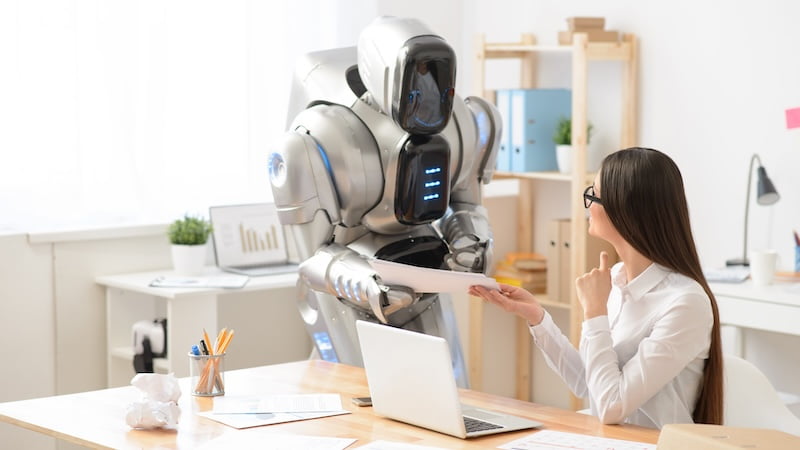
While some people see artificial intelligence as a threat to their jobs, it also has enormous potential. As a recent study shows, AI could replace thousands of civil servants in the future – and thus counteract the shortage of skilled workers.
The issue of bureaucracy is as closely linked to Germany's image as German punctuality. However, civil service in this country has recently been repeatedly criticized: experts are increasingly criticizing efficiency and often see bureaucracy as a source of high costs.
At the same time, there is an enormous shortage of skilled workers. However, according to a recent study by the management consultancy McKinsey, the use of artificial intelligence could help remedy the situation.
Can AI replace civil servants?
According to the study, there is currently a shortage of around 550,000 full-time employees at the federal, state and local levels. This gap could be reduced by up to 165,000 employees through the use of generative artificial intelligence. AI would open up new possibilities for automation.
Automated systems have so far only been able to take on 20 percent of tasks that require complex specialist knowledge. If artificial intelligence came into play, the proportion could rise to 55 percent.
From chatbot to author: How AI can work effectively
To find out how efficient the use of artificial intelligence can be, McKinsey analyzed around 2,100 different work activities and the skills required for them. The result: In public administration, tax and local government administrations in particular could benefit from the use of GenAI.
In general, the areas of application in public services are diverse. For example, the technology is already being used for citizen-oriented communication through chatbots. In some cases, it can handle around half of the enquiries that human call center agents currently handle.
Artificial intelligence could also be used to create summaries, automate change requests, generate new content for brochures and develop software.
AI as a replacement for civil servants: Security needs a guarantee
However, until AI can actually replace civil servants, security must be ensured. Because confidential government data could become public or be stolen – especially if administrative employees inadvertently enter it into AI models via prompts.
This is another reason why not only artificial intelligence but also human personnel must be adequately trained. Officials would need training to use the new technology effectively and work with the data generated.
Another risk arises when AI results contain outdated, incomplete or inaccurate information. They can jeopardize public trust in government services. According to McKinsey, however, artificial intelligence is fundamentally a promising tool for reducing the skills gap in Germany's public service.
Also interesting:
Source: https://www.basicthinking.de/blog/2024/07/25/ki-beamte-deutschland/


